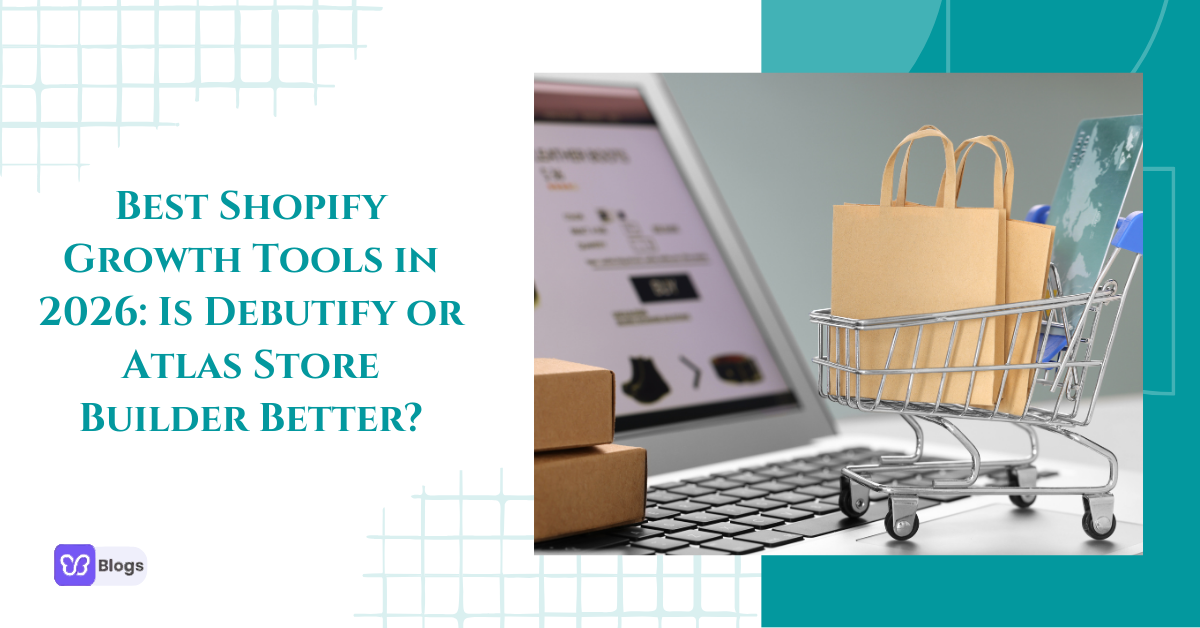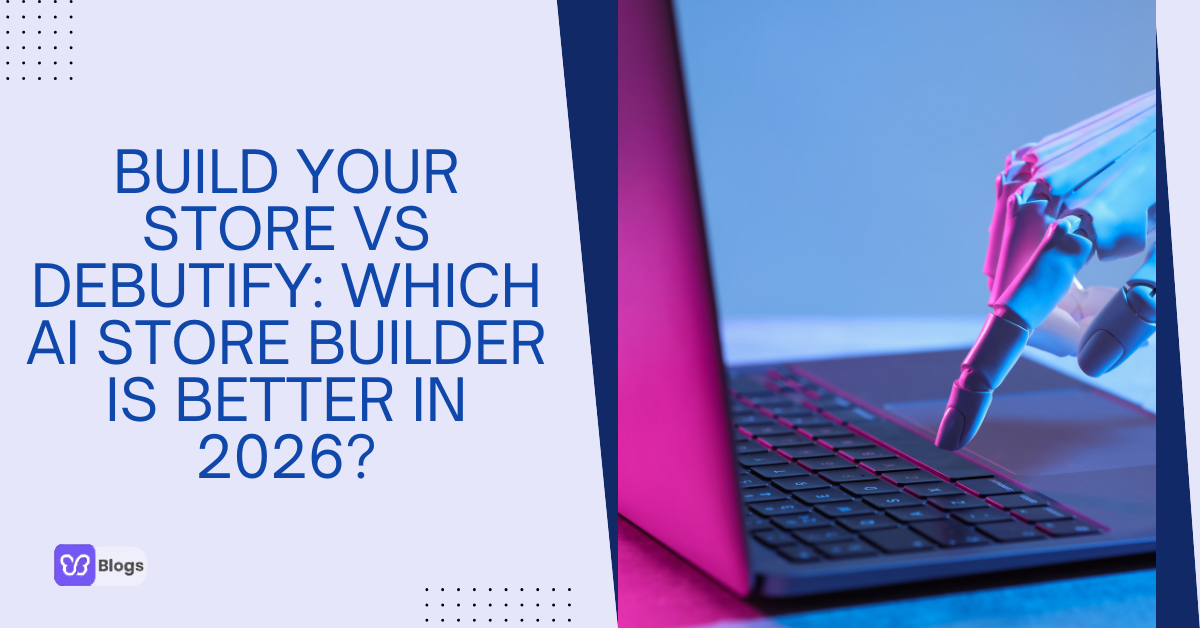Every online business, big or small, needs to grow to be competitive. Its purpose is to boost traffic and sales.
Remember, lack of growth means someone else is enjoying the lion's market share.
Yes, you got that right.
If you're not witnessing noticeable growth over time, your buyers are probably choosing your competitor's products and services over yours.
The B2B eCommerce sales trends in 2024 are ever-evolving, making it challenging for marketers to get their strategies right.
Between budget constraints and marketing channels, present-day B2B marketers have much to juggle when creating their marketing strategies.
Although B2B eCommerce marketing is one of the most crucial growth hack strategies, many B2B firms aren't implementing it correctly. Some even depend on old-school and outdated B2B growth strategies that are no longer valid.
So how to keep up with those changes and keep your B2B marketing strategies in line with the current B2B sales trends in 2023?
This B2B eCommerce marketing guide has everything you need to fuel your strategy to maximize your growth in 2024 and beyond.
What Is B2B eCommerce Marketing And How Does It Work?
B2B marketing, also known as business-to-business marketing, refers to strategies that target a business or an organization. You need to work on B2B marketing strategies for your business if your target audience is any other business or a company instead of consumers.
Let's take an example of Hubspot here. The online company has other businesses as customers, meaning all of its marketing efforts are geared toward B2B tactics.
As far as B2B marketing is concerned, it is a process that revolves around strategies to market products to businesses that further produce consumer goods and other products and services for final users.
Most B2B companies rely on direct and outbound techniques while developing a B2B eCommerce marketing strategy for their business. But the B2B landscape has dramatically transformed in recent years. The buying preferences and patterns have also evolved in the past few years.
Customers prefer to do their research instead of relying on personal references and recommendations.
Today's B2B marketers, therefore, prefer to create growth strategies that are more personalized and focused on their target audience.
Before we dive into details, first look at some factors that differentiate the B2B marketing framework from B2C marketing practices.
B2B VS B2C Marketing
B2B marketing and B2C marketing are entirely different from each other. These two concepts aren't only different in literal meaning but also differ in their respective applications.
B2B marketers target customers who are purchasing on behalf of their companies and organizations.
B2C companies, on the other hand, fulfill the needs of individual buyers who are buying stuff for their personal use.
Why B2B Marketing Is Important For Your Business?
We have seen thousands of businesses switching from "people-to-people strategy" to 'B2B practices'. Here are a few reasons why many online businesses prefer B2B marketing strategies to maximize their growth and potential.
Helps Owners Widen Their Reach
B2B marketing helps marketers expand and widen their reach. With B2B marketing tactics, you can reach all levels of audiences regardless of their location.
No matter what your niche is, you can reach out to different audiences without breaking the bank.
Because of this, many small, mid-scale, and even established online businesses rely on this ecommerce method.
Cost-Effective Marketing Tactics
When we talk about B2B marketing strategies, you don't have to spend thousands of dollars on advertising. Anyone with an active internet connection and a creative mind can outperform their competitors.
There is no need for fancy and expensive newspaper, TV, and magazine marketing tactics either. There are so many marketing avenues you can access to create your brand presence.
For instance, you can create social media pages to target your potential customers. Also, you can post videos on YouTube or Instagram to show your prospects what you have in store for them.
Trims Down Costs And Increases Returns
Another perk of using B2B marketing strategies is that it significantly reduces product and service costs.
Since B2B tactics allow businesses to target an audience based on demographics, interests, and industry, you don't have to increase your efforts to achieve the desired growth level.
Here, the key is to know more about your target customers to develop strategies that address their pain points.
The next step is to check out local suppliers and vendors you may need. At this step, you must also determine what kind of customers might patronize your business.
You can also get help from online surveys and questionnaires to identify your prospects.
Growth And Expansion
B2B marketing strategies allow new market entrants to compete with established businesses. We know experience matters in most business cases. But when we talk about online selling, the one with the better plan always wins.
For instance, a company starting out can supply raw materials to established businesses. That lends an opportunity for both businesses to grow and succeed.
Promotes Innovation
Starting a new business isn't a piece of cake. However, B2B marketing makes it hassle-free for startups to market their products and services. Technological advancements in the space of customer service, website design, and virtual banking have made it incredibly easy for new sellers to set their foot in the digital marketplace.
Top Seven B2B Marketing Strategies To Maximize Your Growth
1. B2B Social Media Marketing
Admit it or not, social media marketing isn't going anywhere. Statistics also reveal that more than 75% of B2B customers use social media platforms when purchasing anything online.
Despite social media being one of the most powerful marketing mediums, many B2B businesses still struggle to get this step right.
If you're looking to create brand awareness for your B2B business or want to humanize your business, B2B social media marketing can be your safest bid.
The process begins by identifying the most suitable social media channels for your business (you do not have to target all social media channels), optimizing those channels, posting regularly, and using paid ads to widen your reach.
2. B2B Customer Marketing
Customer marketing forms the basis for business-to-business marketing. That's fine if you haven't heard of this term earlier, as many B2B marketers are still not aware of the significance of customer marketing for B2B.
Customer marketing revolves around B2B growth strategies that enable businesses to continue marketing to their existing customers after buying stuff from them.
In other words, this type of B2B marketing involves practices that help businesses retain their customers and save on customer acquisition.
There are several things you can do to keep your existing customers engaged. For instance, you can introduce a customer loyalty program, send emails to announce new offers, and invite your customers to become part of your surveys and questionnaires.
3. B2B Email Marketing
Did you know more than 93% of B2B marketers benefit from email marketing? Email marketing was, is, and will remain the best method to reach existing and potential clients.
Email marketing, if done right, can encourage engagement. The better you're able to engage your audience, the better your chances are to convert them to your paying customers.
While creating an email marketing strategy for your B2B business, it is critical to understand that B2B customers prefer logic instead of emotions (something we see in B2C marketing tactics). They want you to answer the questions like 'how collaborating with your business will increase my conversion rates?
Here are a few things you can do to optimize your email marketing campaign and ensure deliverability:
- Create an engaging headline
- Do not add many CTAs to your email copy as it may confuse the reader
- Segment your email to reach the most relevant audience
- Use responsive email designs
4. B2B Digital Marketing
Every B2B business needs to have a robust digital presence. Today, having a digital presence is a lot more than creating a user-friendly website. It's a complete process comprising paid ads, SEO, and all other strategies that can bring your business closer to your target audience.
Some of the essential elements of B2B digital marketing strategy include:
Knowing Your Target Audience
Similar to any other marketing strategy, the B2B Marketing plan also begins by creating buyer personas. Knowing your prospects will make everything easier and also help with other marketing efforts.
Creating A Website
More than 80% of customers visit a website before making a purchase. It is, therefore, more critical than ever for B2B businesses to create an easy-to-use website.
B2B selling involves many key market players, including top executives and policymakers. It would be easier for decision-makers to get an overview of your products and services through your website.
Optimization
The next step is to optimize your digital presence. For this, you have to implement the best SEO practices (both off-page and on-page) to improve your search engine visibility and website traffic.
Fuel Your Digital Presence With PPC
The last step is to spice up your digital marketing strategies with paid ad campaigns. This is the most effective and essential part of your digital marketing strategy. It is so important that we have dedicated one entire heading to B2B PPC marketing (you're going to see that in the subsequent sections).
You must understand that paid ads should be part of your B2B marketing campaigns. Pay to target the most relevant categories, as doing so will help you witness the most productive results.
5. B2B Content Marketing
Similar to B2B businesses, B2B customers are also quite different. Their needs and desires are very different from B2C customers. Their focus is more on expertise and knowledge than pleasure and a sense of fulfillment.
A foolproof B2B content marketing strategy is a perfect solution to your B2B customers' needs. These techniques can educate your customers, inform them, and drive sales.
Here it is critical to understand that your content marketing efforts should be backed by SEO practices so that your target audience will not have difficulty finding your content online.
Also, your content marketing strategy should be in line with your buyer's journey.
Whether it's in the form of a blog or descriptions on your website, make sure your content resonates with your target audience and reflects your best offers.
6. B2B PPC Marketing
PPC marketing is an effective digital marketing strategy that seamlessly works with any digital marketing platform. This form of digital marketing can support your demand-generation process. As a result, you'll successfully nurture contacts through remarketing.
7. B2B Sales Support
The name says it all. Sales support is something that supports your sales personnel to do their job effectively.
According to TenFold, “Sales support refers to a variety of functions that help your sales representatives focus on actually selling and closing deals.”
Sales staff make the last stages of your funnel powerful. These people contribute the most to turning prospects into paying clients.
So as an online seller, it is your goal to streamline things for your sales staff. Empower them to make decisions and create strategies that they feel can contribute to the sales process.
Final Words
All in all, if your marketing efforts are not focused and targeted, you won't be able to achieve the desired results. While B2B and B2C strategies are more or less the same, they work differently, as they're targeted toward different audiences.
Without tailored and precise marketing efforts, reaching the desired results may prove challenging in the dynamic landscape of B2B ecommerce marketing.





